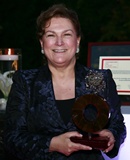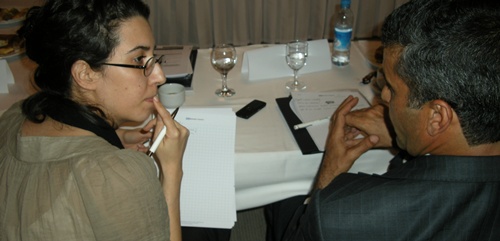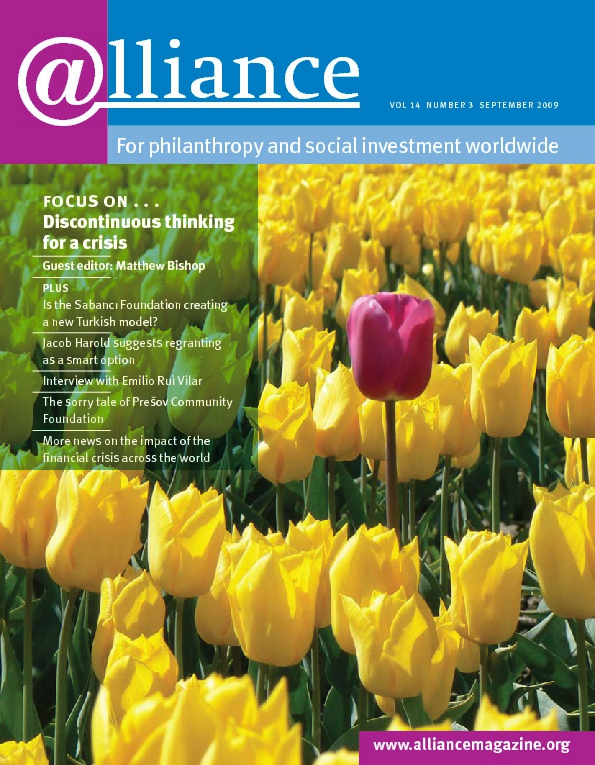As befits the first Turkish foundation to win the Raymond Georis Prize for Innovative Philanthropy in Europe, the Sabancı Foundation is paving the way for a new age of modern giving to strengthen an emergent democracy by addressing key issues that will lead to a more just society. In designing its new social justice programme, the foundation has carried out considerable research, both to establish what is already ‘out there’ and to find out what members of the public feel about the needs.
Turkey is the most free country in the Muslim world, and making progress towards establishing a democracy comparable with its European neighbours. What Arab nations call the ‘Turkish model’ offers hope that democracy and Islam can coexist, though not with government support alone; civil society is essential to the model’s success.
Foundations in Turkey first emerged in the 12th century and played a crucial role in social and economic development throughout the Ottoman era, providing basic public services such as education and health. Foundations established since the Republic was founded – such as Sabancı, launched in 1974 – continued to spend the majority of their philanthropic funds supporting government services by building and maintaining schools, dormitories and hospitals, especially in poor locations.
In contrast, the Turkish NGO sector has been more focused on improving human rights and addressing gender inequality and violence. The Sabancı Foundation is changing this division of labour by moving beyond Turkey’s traditional foundation mode of funding only the ‘hardware’ of institutions to supporting the ‘software’ of social change. As a predominantly Muslim country with aspirations for a more just society, change in Turkey – for women, youth, disabled people and other disadvantaged groups – will have a vital impact on neighbouring regions, east and west.
 In 2007, the Sabancı Foundation took the first step towards creating a new strategy to address social injustices in Turkish society when it launched a partnership with UN agencies in Turkey and the country’s interior ministry to promote and protect the human rights of women and girls. The United Nations Population Fund later selected this as one of the six best rights-based programmes globally. This experience also ignited a new strategy and programme design that aimed to advance social development by promoting an equitable environment in which women, youth and people with disabilities have equal access to rights and opportunities to participate actively in society.
In 2007, the Sabancı Foundation took the first step towards creating a new strategy to address social injustices in Turkish society when it launched a partnership with UN agencies in Turkey and the country’s interior ministry to promote and protect the human rights of women and girls. The United Nations Population Fund later selected this as one of the six best rights-based programmes globally. This experience also ignited a new strategy and programme design that aimed to advance social development by promoting an equitable environment in which women, youth and people with disabilities have equal access to rights and opportunities to participate actively in society.
A particularly important aspect of the foundation’s strategy is to mainstream gender, youth and disability issues. In practice, this means supporting NGO programmes that, for example, develop new strategies to address literacy among disabled women or incorporate discussions of gender issues and violence in youth development programmes. This strategy is being pursued through a range of activities, most prominently grantmaking. Sabancı is the first Turkish foundation to make grants to NGOs, another indication that Turkish philanthropy is shifting focus to support civil society and address critical problems in the country’s social and economic development.
Scanning the landscape
Good grantmaking practice suggests that the first step in designing programmes is to get a good sense of ‘what is out there’. Following a series of consultative meetings with more than 100 stakeholders, several studies were commissioned, including an extensive public opinion survey. These came up with some striking findings.
First, responses from young people showed an overwhelming sense of despair and pessimism; a lack of peace, trust and motivation; and great concern for the future. The youth unemployment rate, which is high and doubles for young women and in urban locations, contributes to this state of mind. Young people are also not completing their education: only 56 per cent go on to high school and 18 per cent to university.
Second, while a slight majority is broadly in favour of participation, civil society and equality, only 4 per cent report any formal involvement in civil society. Only 25 per cent of young people are active in a club or association.
Third, a mere 15 per cent of respondents prioritized ‘women’ as a focal area, as compared with youth and disability. Men are three times less likely to consider women a priority. The main problem area by far is seen as violence, followed by employment and social integration. With regard to women, most suggested that building awareness on gender issues and support for victims of violence should be priorities.
Finally, an overwhelming majority reported that unemployment is Turkey’s greatest overall challenge, followed by economic instability, terrorism and education. Economic empowerment, such as skills training, job creation, childcare support and opportunities to obtain or complete education, was highlighted as a major area of need for women, youth and disabled people, who also want workplaces to be more inclusive and sensitive to their needs.

Key areas of focus
These findings complemented the outcomes of additional field studies, highlighting gaps and what Sabancı could do to address them. For example:
- Surveys and field studies indicating challenges for youth, women and disabled people show very similar patterns of social exclusion. Rather than address these issues in separate programme areas, Sabancı has taken a holistic approach, supporting programmes that address all three together and promote connections across fields.
- To counter the fact that most existing youth activities overemphasize cultural activities and sport, the Sabancı programme stresses personal development, leadership, empowerment and peer-to-peer support.
- The low prioritization of women in the public survey highlighted the need to accentuate this issue, bringing gender issues and women into the core focus areas.
Some defined needs were purposely not incorporated into the new programme strategy. Although education was a top priority for the public, Sabancı already has an existing investment in education through the Sabancı University and 1,200 new scholarships each year. New areas of work under employment (school to work transition, vocational assessment, equal opportunities), participation (social, cultural, civic), social justice (awareness raising, addressing discrimination and abuse, support for victims of violence) were given priority, with the goal of striking a balance between service and advocacy-based approaches.
Leveraging foundation resources
Sabancı is well aware of the importance of its convening role. The first group of Sabancı Foundation grantees – the leaders of youth, women’s and disability NGOs – gathered at a workshop in early June. Among them was KAMER, a prominent Turkish women’s NGO that runs programmes on empowerment in 23 southeastern Turkey cities and played an instrumental role in the promulgation of a regulation to address honour killings.
Next to the KAMER leader was a man from a partner organization, the Tunceli Disabled Persons Association. Discussing impact assessment, he said: ‘As far as I’m concerned, one major impact has already taken place. I am here, with our partner KAMER, to understand and address the needs of disabled women and women with disabled children in southeastern Turkey. Before this project, we would have not looked at one another as potential partners – but with this project, we are joining forces and creating a new level of awareness regarding gender and disability issues in Turkey.’
This encouraging statement indicates that Sabancı Foundation’s new direction can lead the way to a new era of social justice work in Turkey and might serve as one of the ‘Turkish models’ of philanthropy for the Middle East and Muslim world.
Filiz Bikmen Bugay is Head of Programs at the Sabancı Foundation. Email filiz@Sabancıvakfi.org
For more information
http://www.sabancivakfi.org/eng/?hakkinda/iliskiler/2009_yenilikci_filantropist_odulu.html
 Comment Anne Van Meerbeeck
Comment Anne Van Meerbeeck
As Filiz Bikmen shows, the Sabancı Foundation is setting a new standard for philanthropy in Turkey and taking a leading role in making the shift from charity to strategic giving. Wishing to really make a difference, Sabancı started developing programme strategies to address social injustices and became the first Turkish grantmaking foundation.
Writing a short comment on such a ‘rich’ article is not easy. Since I am not familiar with the Turkish context, I will focus on some parallels between the bottom-up approach used by Sabancı to build its grant programme and the way the King Baudouin Foundation (KBF) identifies needs through the KBF Listening Network.[1]
Societies change, problems develop and new challenges constantly appear. As Bikmen correctly argues, the first step in designing programmes is to get a good sense of ‘what is out there’. To identify new or unknown forms of social injustice or exclusion in Belgium, KBF created in 2002 a ‘listening network’ within the framework of its Social Justice Programme. This bottom-up method of gathering information has three kinds of participant: ‘witnesses’ and grassroots actors providing information (nurses, hairdressers, teachers, magistrates, etc); intermediaries identifying, recruiting and training the witnesses; and a ‘decoding committee’ to process and decode the material provided.
Comparable to the Sabancı approach, which complemented public opinion surveys with field studies, KBF explores the issues selected by means of the Listening Network in various ways ( mapping, research, discussion groups, interviews) to decide if and how an issue will be addressed. In that phase, it is important to identify leverage points of change and the wide range of methodologies foundations can deploy to realize their objectives.
Designing a programme from the bottom up and listening to observers close to the ground are crucial for a foundation’s legitimacy and accountability. However, in my opinion, a foundation should still feel free not to include some of the identified needs in its programme strategy, a liberty that Sabancı allowed itself. Indeed, a long-term vision, balancing diverse approaches and considering complementarities with other projects and actions, lends credibility too. Based on our experiences, I would stress the importance of giving feedback to information providers, if not on the outcome of their individual testimonies then at least on the outcomes of the bottom-up process as a whole.
Finally, I would add the hope that the Sabancı Foundation will be able to pursue its philanthropic efforts with enabling legal frameworks and good civil society partners.
1 Listening Network: An innovative tool for detecting emerging social issues can be downloaded at the KBF website http://tinyurl.com/alliance4
Anne Van Meerbeeck is philanthropy adviser and project manager at the King Baudouin Foundation. Email vanmeerbeeck.a@kbs-frb.be
 Comment Stephen Pittam
Comment Stephen Pittam
I was greatly encouraged to read of this Sabancı Foundation initiative. Having recently spent a lot of time caught up in discussions as to what we mean by social justice, it is great to read about a development that so clearly has a social justice feel to it. The language of equality, human rights, justice and peace is used. The programme is clear about promoting citizen engagement in order to build a thriving democracy. It is not often that foundations describe their work in the context of building democracy.
I was particularly interested in two aspects of the process used to define the new programme. First was the attention that was given to scoping the environment and to finding out the views of Turkish citizens. Often foundations think they know what needs to be done. The opposite is sometimes the case. The power that goes with holding money can often lead to foundations growing out of touch with day-to-day realities. Spending time and energy on learning what citizens feel was shown here to be well worth the effort.
The second aspect almost feels contradictory to the first. This is that the Sabancı Foundation used the evidence to focus on an issue of minority interest. Only 15 per cent of respondents identified issues relating to women as a priority, and yet, almost because of this, the Foundation chose women’s development work as a theme for the programme. If we are really interested in promoting social justice, foundations have to be prepared to support minority interests and unpopular causes.
Finally, as part of a strategy for addressing structural inequality any programme promoting social justice must work to empower those who are most disadvantaged. The quote from the man from the Tunceli Disabled Persons Association shows how the Sabancı Foundation has given affirmation, hope and power to the dispossessed. Foundations, with their independence but significant social standing, are uniquely placed to play this role – an important one in terms of building an inclusive society and a thriving democracy.
The real test now is – how will the programme be implemented? Will the Sabancı Foundation be cautious in those its funds, or will it be adventurous and take the kind of risks that only foundations can? It would be good to hear in three or five years time about the difference that this programme has made.
Stephen Pittam is Secretary of the Joseph Rowntree Charitable Trust. Email stephen.pittam@jrct.org.uk



Comments (0)